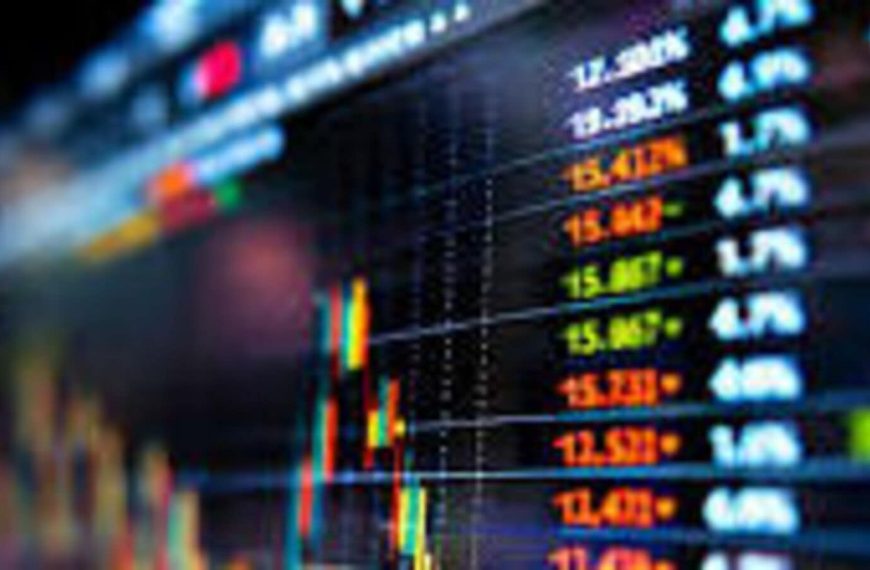Global Markets React to Trade War Fears and Record Gold Prices
In a turbulent day for financial markets, global stocks took a downturn as concerns over a potential trade war intensified. Following statements from former U.S. President Donald Trump indicating that tariffs would affect all nations, investors are increasingly worried about a possible economic recession. The uncertainty has pushed safe-haven assets, such as gold, to unprecedented highs, reflecting a growing flight to safety among investors.
Wall Street Sees Red Amid Uncertainty
On March 31, major U.S. stock indexes experienced declines, with the Dow Jones Industrial Average slipping by 0.11% to 41,538.47. The S&P 500 saw a larger drop of 0.90%, closing at 5,530.99, and the Nasdaq Composite fell 2.00% to 16,976.48. Investor sentiment was particularly hit hard in sectors such as consumer discretionary, technology, and communication services, while utilities and real estate managed to post some gains.
- Key Index Performances:
- Dow Jones: -0.11%
- S&P 500: -0.90%
- Nasdaq: -2.00%
According to George Lagarias, chief economist at Forvis Mazars, the erratic approach of the Trump administration has created an atmosphere of unpredictability. He noted, "Markets thrive on consistency, and the current inconsistency is breeding a lot of uncertainty."
Global Markets Follow Suit
European markets mirrored U.S. trends, with the STOXX 600 index declining by 1.40%, marking its lowest level in nearly eight weeks. Major European indices, including those in Frankfurt, London, and Paris, fell between 1.7% and 2%. Meanwhile, the MSCI Asia-Pacific index, excluding Japan, dropped 1.9%, signaling widespread concern across global markets.
Rising Recession Fears
Recent analysis from Goldman Sachs has ramped up recession concerns, raising the likelihood to 35%, a significant increase from the previous estimate of 20%. Analysts expect Trump to propose reciprocal tariffs averaging 15% on all U.S. trading partners soon. This follows disappointing data released on Friday, which indicated a surprising rise in core inflation alongside weaker consumer spending, intensifying fears of economic stagnation.
- Key Economic Indicators:
- Core inflation: Higher than anticipated
- Consumer spending: Below expectations
- Recession probability: Increased to 35%
Gold Prices Surge
In response to these economic uncertainties, gold has been on a remarkable upward trajectory, reaching a new record high of $3,128.06 per ounce. Spot gold prices increased by 1.18% to $3,120.27, while U.S. gold futures rose 1.3% to $3,126.60. This surge highlights gold’s appeal as a safe-haven asset amidst economic turmoil.
Currency Market Dynamics
In the currency markets, the U.S. dollar exhibited mixed performance. It weakened by 0.13% against the Japanese yen, trading at 149.63, while strengthening against the euro, which fell 0.27% to $1.0799. The dollar index, which gauges the greenback against a basket of currencies, gained 0.22%, reflecting the complex dynamics at play.
Bond Market Insights
Bond investors appear to be betting on a slowdown in U.S. economic growth, which might prompt the Federal Reserve to consider interest rate cuts. The yield on the benchmark 10-year U.S. Treasury notes fell by 3.5 basis points to 4.219%. In Europe, the yield on German 10-year Bunds also decreased, indicating a shift in investor sentiment towards safer assets.
Energy Market Reactions
In the energy sector, crude oil prices displayed resilience, with Brent crude rising 1.41% to $74.67 per barrel, while U.S. crude increased 2.34% to $70.99. This uptick comes as Trump threatened additional tariffs on Russian oil buyers, citing ongoing geopolitical tensions related to the war in Ukraine.
As market participants brace for further developments, all eyes will be on the upcoming March payrolls report and remarks from Fed Chair Jerome Powell, which could provide additional clarity on the economic landscape.











